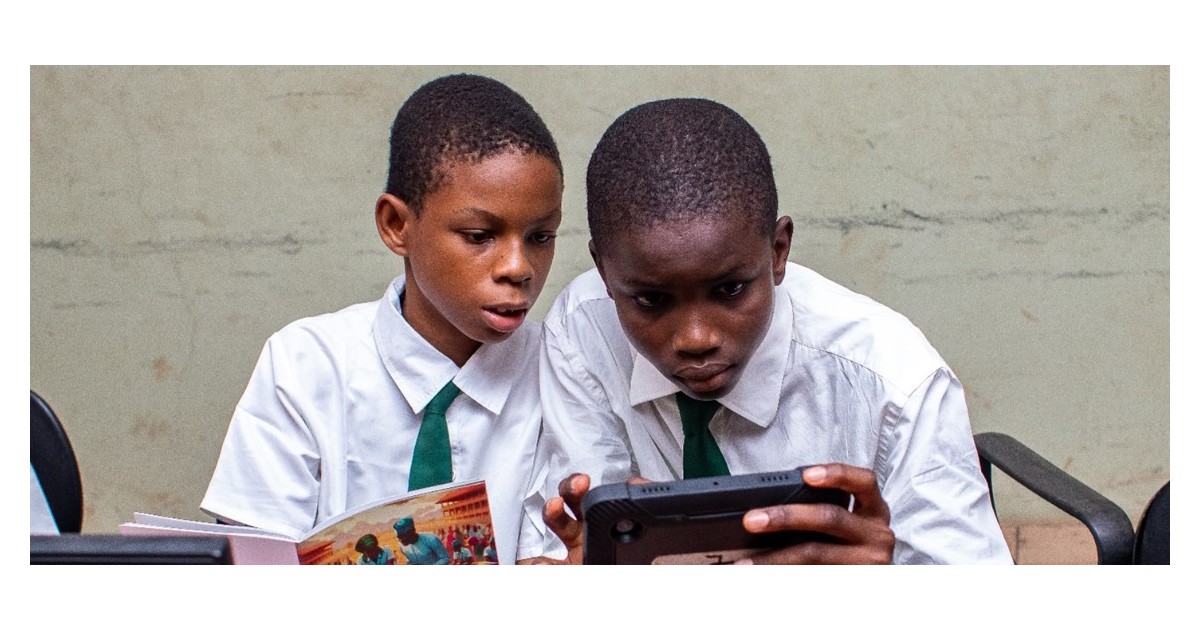Note: The video production was directed by Chuka J. Agu.
The PIONEER acronym summarizes the initial lessons learned during the implementation:
1. Prioritizing students. The students in the pilot were highly engaged, with many expressing a strong desire to spend more time in the computer lab using the AI tool. Teachers noted that students quickly found unique and productive ways to interact with the LLMs. Even students in the control group were eager to participate, highlighting the program’s potential to boost academic engagement and prioritize students’ development of essential skills like digital literacy and critical thinking for their future. Imagboghowan Anointed, a student at Imaguero College in Benin city told us: “The program has helped me with my communication. My interaction with teachers, friends, and families. It has helped me with my pronunciation, writing, spelling, and vocabulary.”
2. Inspiring teachers. Following the pilot, teachers’ initial apprehension about using AI shifted to recognizing its potential and being aware of its guiding role in boosting learning amongst their students. Encouragingly, teachers formed informal groups to share best practices and improve along the way. They are beginning to see AI as a technology that can add value to their roles. Okhide Eugene, a teacher at Imaguero College in Benin City, told us that AI is “like an assistant teacher. In our current program, we supervise what the students are doing.”
3. Optimizing immersion. The program ran for six weeks, but a longer duration could have been more effective. In the first weeks, students focused on setting up emails, creating Microsoft Copilot accounts, and learning to use the computers, as many had never used one before. By prolonging the program, more time can be allocated to focus solely on the students’ actual learning needs.
4. Nurturing necessary infrastructure. As far as technology can go, schools need essential electrification and connectivity. Frequent power and internet outages, often exacerbated by the rainy season, disrupted student interactions with the LLMs. Backup power and connectivity for classrooms were crucial to maintaining smooth, uninterrupted sessions.
5. Empowering participants with relevant materials. In innovative programs, teachers and students need support to succeed. As part of the program, toolkits for students and teachers were developed to guide the sessions. The guidance suggested prompts to encourage productive engagement, allowing the LLM to act as a tutor and adapt to the students’ levels. The prompt engineering made the LLM’s responses much more useful to the students, with relevant examples to the local context and environment, and made the sessions more structured and effective.
6. Enhancing implementation. As with any program, the gap between design and implementation can be significant. To address this, a small team of monitors closely supervised each session, gathering key insights and providing feedback to ensure the program stayed on track.
7. Reducing AI risks. While enjoying AI’s effectiveness as classroom innovation, teachers highlighted key dangers of AI, like overreliance, hallucination (generating false responses and presenting them as facts), and misuse, with careful attention to mitigation strategies helpful to students as they navigate this new way of learning.
These seven PIONEER lessons learned from the Edo State pilot offer valuable insights into the future of AI in education, particularly in resource-constrained environments. As we consider scaling this approach, generative AI shows promise in democratizing personalized learning. However, success depends on active educator involvement, supportive infrastructure, continuous monitoring, and evaluation. The program’s low cost and tailored design make it easier to scale than subscription-based software, but measuring its impact is crucial first. Stay tuned for the next blog to see the results!
The team extends its deep appreciation to the Honorable Commissioner for Education of Edo State, Dr. Joan Osa Oviawe, and the Acting Director of School Support Services of the Edo State Secondary Education Board, Jennifer Aisuan, for their exceptional leadership and collaboration throughout the implementation of the pilot.
To receive weekly articles, sign-up here
